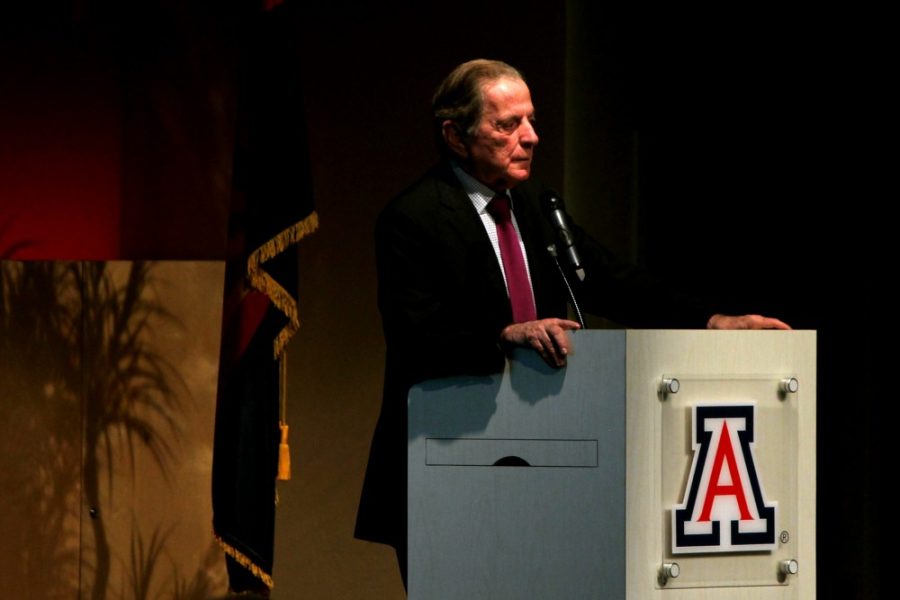Several professors from around the globe came together in the Student Union Memorial Center’s Grand Ballroom on Sunday and Monday to examine Israel’s role in the Middle East. This dialogue was part of a conference held by the Arizona Center for Judaic Studies.
The conference kicked off with the discussion of the two-state solution by two speakers: Shai Feldman a professor from Brandeis University and Dr. Khalil Shikaki from the Palestinian Center for Policy and Survey Research.
Feldman expressed what he believed to be the answer to whether or not the two-state solution was dead, representing the Israeli perspective. Shikaki rebutted by presenting the Palestinian perspective.
According to Shikaki’s research, two-thirds of Palestinians demand the resignation of President Mahmoud Abbas in order to make an attempt to regain a solution with Israel. Feldman also concluded that Israel is ready to support the two-state solution in order to create “two states of two groups of people,” Shikaki said.
After the discussion of the two-state solution, the conference let out for a lunch break, resuming at 1 p.m. with a talk by University of Texas at Austin professor Ami Pedazhur, who spoke about radical political factions redefining the Israeli-Palestinian conflict.
“Within territorial conflicts, sub-state actors who choose nonviolent over violent tactics benefit in three main ways,” Pedahzur said.
Pedahzur continued by explaining how nonviolent tactics help reduce the costs and risks of the Israeli and Palestinian struggles and improve the prospects of attaining short-term objectives. He suggested that by diverting disputes from violent to peaceful paths, they are able to gain domestic and international legitimacy which may or may not help in the long run.
The first day of the conference concluded with professor David Menashri, senior research fellow from the Aliliance Center for Iranian Studies, presenting Iran, Israel and the U.S. with respect to the views from Tel Aviv.
Menashri explained how, after the Islamic Revolution and despite domestic rivalries and regional realities, Iran has remained consistent with its animosity toward Israel and the U.S. Iran, after the 1948 Arab-Israeli War, has had a negative relationship with Israel and has kept its animosity firm.
“President [Hassan] Rouhani has fulfilled his promises to transform recent Iranian challenges into opportunities,” said Jon Yarborough, a participant in the conference.
President Rouhani has turned the situation with Iran into a solution, Menashri said, and establishing Iran as a dominant power in the region could change its attitude toward Israel in this context.
Follow Julian Esquer on Twitter.









